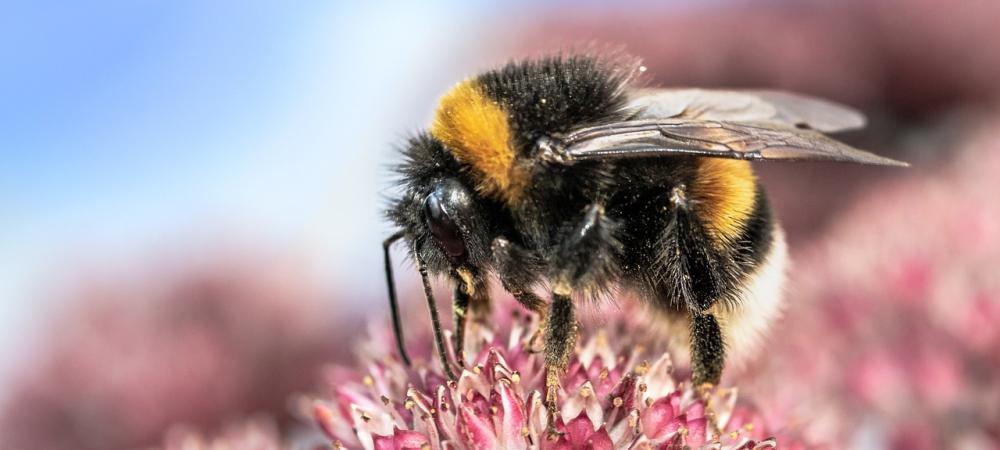How to Make Natural Bee Repellent: A Safe, Effective Guide

If bees are buzzing around your home or garden a little too much for comfort, you’re not alone. Many homeowners are searching for natural bee repellent options that are effective yet safe for the environment. Bees play a crucial role in pollination, so the goal is to deter—not harm—them. Whether you're trying to enjoy your patio in peace or prevent a surprise encounter near your kids or pets, this guide will help you learn how to keep bees away using DIY solutions and when it's time to call in the pros.
What Attracts Bees in the First Place?
Before you reach for a homemade bee spray, it's helpful to understand why bees are attracted to your yard in the first place. Common bee attractants include:
- Flowering plants and herbs like lavender, clover, and sunflowers
- Bright colors, especially yellow, blue, and white
- Sweet smells from perfumes, drinks, or even garbage cans
- Unsealed food and sugary drinks left outside
By reducing these attractants, you can minimize bee activity even before applying repellent.
How to Make the Best Homemade Bee Repellent
Creating a DIY bee repellent recipe is easy, affordable, and environmentally friendly. Here’s how to make a homemade bee repellent spray that’s safe for outdoor use:
Ingredients:
- 10 drops peppermint essential oil
- 10 drops clove essential oil
- 10 drops citronella essential oil
- 10 drops eucalyptus essential oil
- 2 cups water
- 1 teaspoon white vinegar or witch hazel (helps oils mix)
Instructions:
- Combine the water and vinegar in a clean spray bottle.
- Add all essential oils and shake well.
- Spray generously in areas where bees tend to gather.
This natural bee deterrent uses scents bees dislike without introducing harmful chemicals into your environment.
Where to Spray the Homemade Bee Repellent
Knowing where to use bee repellent is key to its effectiveness. Focus on these outdoor bee deterrent zones:
- Around patio furniture and dining areas
- Along doorways and window frames
- On deck railings and fences
- Near garbage bins or compost piles
- Around play areas or pet spaces
Reapply every few days or after rain for best results.
What Can I Spray On Me To Keep Bees Away?
If you're heading outdoors and want personal protection, consider a natural bee repellent for skin. Bees are sensitive to strong scents, so the following oils may help:
- Lavender oil
- Peppermint oil
- Lemongrass oil
DIY Tip: Mix 5 drops of your chosen oil with 1 tablespoon of carrier oil (like coconut or almond oil) and apply it to exposed skin. This creates a safe, bee repellent for people that also smells pleasant.
Safety Note: Always patch-test essential oils before using them on your skin, and avoid contact with eyes or broken skin.
How Do You Get Rid of Bees For Good?
If you're looking for more lasting solutions beyond sprays, here are a few natural ways to repel bees permanently:
- Seal cracks and crevices where bees may try to nest
- Move or cover food sources like open trash bins or hummingbird feeders
- Plant bee-repelling herbs such as mint, wormwood, or eucalyptus
- Use decoy nests to discourage real ones (some bees avoid nesting near others)
While these methods may not eliminate bees entirely, they make your property much less inviting.
Is It Okay to Repel Bees? Ethical & Environmental Considerations
Bees are vital to the ecosystem and should not be killed unnecessarily. Fortunately, most eco-friendly bee repellent methods don’t harm bees—they simply encourage them to go elsewhere. The goal is to maintain a bee-safe backyard by using natural deterrents that don’t disrupt pollination or harm the environment.
If you're using sprays, avoid spraying directly on plants bees pollinate or when bees are actively foraging (usually mid-morning to afternoon).
When to Call a Professional
Sometimes, bees are more than just a nuisance—they're a hazard. If you notice:
- A bee nest or hive in your walls, attic, or crawlspace
- Increased aggression or stinging incidents
- Concerns about bee allergies for you or your family
…it’s time to contact a professional pest control service.
At Petti Pest Control, we specialize in stinging insect control solutions. Whether you need professional wasp and bee removal or a full inspection, we’re here to help. Contact us today!
